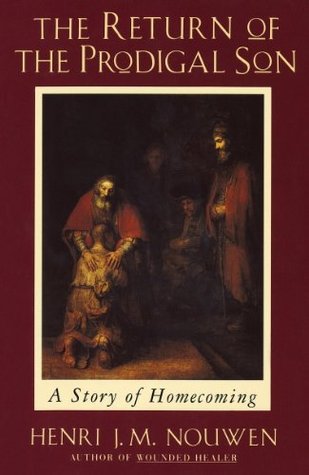More on this book
Community
Kindle Notes & Highlights
Read between
October 2 - October 5, 2014
“Whether you are the younger son or the elder son, you have to realize that you are called to become the father.”
I leave home every time I lose faith in the voice that calls me the Beloved and follow the voices that offer a great variety of ways to win the love I so much desire.
Anger, resentment, jealousy, desire for revenge, lust, greed, antagonisms, and rivalries are the obvious signs that I have left home.
As long as I keep looking for my true self in the world of conditional love, I will remain “hooked” to the world—trying, failing, and trying again. It is a world that fosters addictions because what it offers cannot satisfy the deepest craving of my heart.
I am the prodigal son every time I search for unconditional love where it cannot be found.
It’s almost as if I want to prove to myself and to my world that I do not need God’s love, that I can make a life on my own, that I want to be fully independent. Beneath it all is the great rebellion, the radical “No” to the Father’s love, the unspoken curse: “I wish you were dead.” The prodigal son’s “No” reflects Adam’s original rebellion: his rejection of the God in whose love we are created and by whose love we are sustained. It is the rebellion that places me outside the garden, out of reach of the tree of life. It is the rebellion that makes me dissipate myself in a “distant country.”
Real loneliness comes when we have lost all sense of having things in common.
One of the greatest challenges of the spiritual life is to receive God’s forgiveness. There is something in us humans that keeps us clinging to our sins and prevents us from letting God erase our past and offer us a completely new beginning. Sometimes it even seems as though I want to prove to God that my darkness is too great to overcome. While God wants to restore me to the full dignity of sonship, I keep insisting that I will settle for being a hired servant. But do I truly want to be restored to the full responsibility of the son? Do I truly want to be so totally forgiven that a completely
...more
I am touching here the mystery that Jesus himself became the prodigal son for our sake. He left the house of his heavenly Father, came to a foreign country, gave away all that he had, and returned through his cross to his Father’s home.
Joy and resentment cannot coexist. The music and dancing, instead of inviting to joy, become a cause for even greater withdrawal.
I have very vivid memories of a similar situation. Once, when I felt quite lonely, I asked a friend to go out with me. Although he replied that he didn’t have time, I found him just a little later at a mutual friend’s house where a party was going on. Seeing me, he said, “Welcome, join us, good to see you.” But my anger was so great at not being told about the party that I couldn’t stay. All of my inner complaints about not being accepted, liked, and loved surged up in me, and I left the room, slamming the door behind me. I was completely incapacitated—unable to receive and participate in the
...more
Everything comes together here: Rembrandt’s story, humanity’s story, and God’s story. Time and eternity intersect; approaching death and everlasting life touch each other. Sin and forgiveness embrace; the human and the divine become one.
I am convinced that many of my emotional problems would melt as snow in the sun if I could let the truth of God’s motherly non-comparing love permeate my heart.
The question is not “How am I to find God?” but “How am I to let myself be found by him?” The question is not “How am I to know God?” but “How am I to let myself be known by God?” And, finally, the question is not “How am I to love God?” but “How am I to let myself be loved by God?”
Joy never denies the sadness, but transforms it to a fertile soil for more joy.


